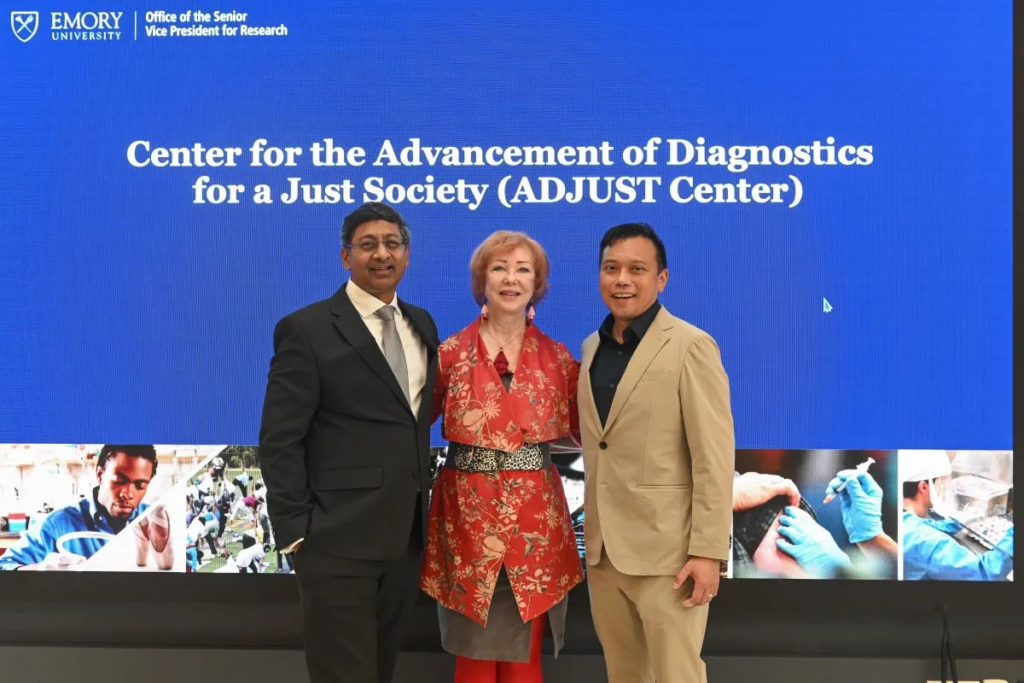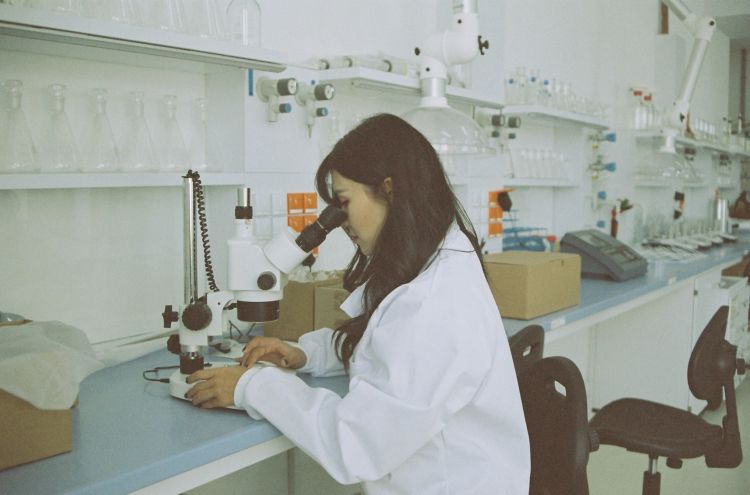Emory launches new program to improve health equity by accelerating disease diagnostic research
December 18, 2023 | Saporta Report

Striving to ensure advanced medical technologies are reaching the populations who need them most, Emory’s Center for the Advancement of Diagnostics for a Just Society (ADJUST) is launching this year as part of NIH’s RADx program.
The last several years have demonstrated that new technologies are steadily allowing for the diffusion of disease diagnosis and monitoring out of clinical environments and into communities, businesses, schools, and homes. These types of point-of-care technologies offer numerous benefits, but they also introduce a whole new set of issues – not only technological and clinical, but also logistical, regulatory, commercial, social, and ethical. Often times, the patients who need these new technologies the most have the least access.
Emory’s new center is the first-of-its-kind designed to address these issues. Utilizing a two-pronged approach to accelerate diagnostic development while ensuring health equity and justice, the ADJUST Center will serve as both a thinktank focusing on the advancement of future disease diagnosis through research and advocacy, as well as a technology foundry to accelerate diagnostic development.
“Given our vast experience, expertise, and ecosystem in diagnostics, we are well poised to be the only center in the nation dedicated to advancing the entire field of diagnostics forward in this modern era of medicine,” says Wilbur Lam, MD, PhD, pediatric hematologist and oncologist at Children’s Healthcare of Atlanta, and professor of pediatrics and biomedical engineering at Emory University and Georgia Institute of Technology. “As we help develop and translate new diagnostic technologies, our Center will also concurrently address the issues of accessibility, usability, and affordability to ensure these state-of-art tests will serve the populations who need them the most.”
The ADJUST Center is borne out of the NIH-funded point-of-care technologies center, the ACME POCT , which is one of six sites in the U.S. selected by NIH as part of the NIH Point-of-Care Technologies Research Network. ACME POCT played a pivotal role during the onset of the COVID-19 pandemic as the national test verification center to rapidly evaluate COVID-19 tests and help make them widely available.
The ADJUST Center will seek to build off the expertise compiled during the COVID-19 pandemic and apply the lessons learned and proven tactics to ensure equitable access to advanced technology for everyone. Projects already underway include assessing the potential adverse outcomes of consumer health wearable technologies and examining the availability of point-of-care HPV diagnostics.
Emory’s Senior Vice President for Research Deborah Bruner, PhD, says, “The ADJUST Center is an important new initiative that builds upon Emory’s strengths and impacts so many of our institutional goals. It is highly innovative, it is entrepreneurial, it is collaborative, and it is focused on health equity – it encompasses a wide variety of things that make us Emory. I’m extremely excited to see what the center can achieve for our community and the world.”
Source: https://saportareport.com/emory-launches-new-program-to-improve-health-equity-by-accelerating-disease-diagnostic-research/thought-leadership/higher-education/emory-university/





